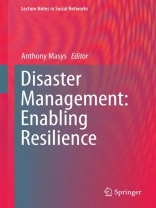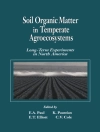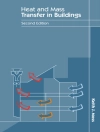The present work will discuss relevant theoretical frameworks and applications pertaining to enabling resilience within the risk, crisis and disaster management domain. The contributions to this book focus on resilience thinking along 4 broad themes: Urban Domain; Cyber Domain; Organizational/Social domain; and Socio-ecological domain. This book would serve as a valuable reference for courses on risk, crisis and disaster management, international development, social innovation and resilience. This will be of particular interest to those working in the risk, crisis and disaster management domain as it will provide valuable insights into enabling resilience. This book will be well positioned to inform disaster management professionals, policy makers and academics on strategies and perspectives regarding disaster resilience.
สารบัญ
Part 1.- 1. Resilience Undefined. A Framework for Interdisciplinary Communication and Application for real; World Problems.- 2. Disaster Management, control and resilience.- Part 2. Urban Domain.- 3. Futuristic smart architecture for a rapid disaster response.- 4. Building in resilience. Long-term considerations in the design and production of residential buildings in Israel.- 5. Urban Resilience & Sustainability. The role of a local resilience forum in England.- 6. Wicked Problems Framework. Architectural Lessons from recent urban disasters.- Part 3. Cyber Domain.- 7. Architectures for Cyber-Security Incident Reporting in Safety-Critical Systems.- 8. The Cyber-ecosystem. Enabling resilience through the Comprehensive Approach.- Part 4. Organizational/ Social Domain.- 9. Enabling Resilience. An examination of high reliability organizations and safety culture through the lens of Appreciative Inquiry.- 10. Unintended Consequences. What lessons can risk-managers learn from the use of armed Remotely Piloted Vehicles for counter-insurgency in Pakistan?.- 11. Extra-fragile in disaster. People with disabilities in a bombarded zone.- 12. The application of quality of life metrics.- 13. Defining and negotiating a shared responsibility for disaster resilience.- Part 5. Socio-ecological Domain.- 14. Wildland Fire Management. Movement towards enabling resiliency?.- 15. Case-Study. Vulnerabilities co-evolutionary dynamics in Morelia Michoacan, Mexico.
เกี่ยวกับผู้แต่ง
Anthony Masys is a Defence Scientist for the Department of National Defence, Defence Research and Development Canada, Centre for Security Science. As Scientific Advisor to the Royal Canadian Mounted Police (RCMP) for both the Vancouver 2010 Olympics and G8/G20 Summits, Dr Masys has influenced the development of a ‘whole of government’ Major Events Security Framework. The MESF is a collaborative planning environment that is rooted in the principles of High Reliability Organizations, Knowledge Management and Organizational Learning.
A former senior Air Force Officer, Dr Masys has a BSc in Physics and MSc in Underwater Acoustics and Oceanography from the Royal Military College of Canada and a Ph D in sociology from the University of Leicester.












